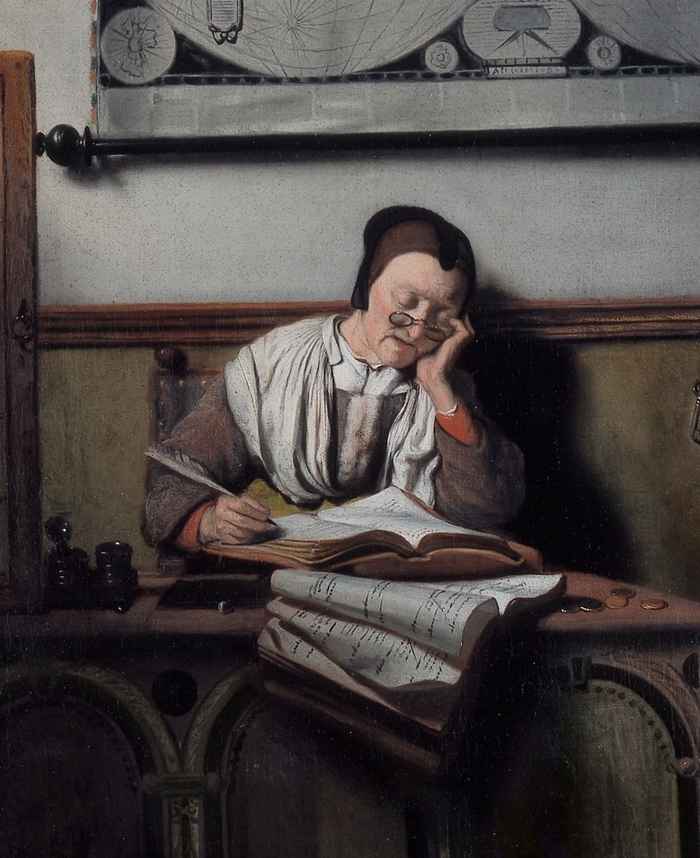Vossius Seminar 10 March 2025: Katherine Brading and Eric Schliesser
- Date
- 10 March 2025
- Time
- 16:00 -18:00
- Location
- University Library
- Room
- Vondelzaal

Program
16.00-17.00h: Katherine Brading, Duke University
Emilie Du Châtelet and the transformation of 18th century physics
Here is a familiar story: up until the early 17th century, physics was a part of philosophy, and then the Scientific Revolution happened (including Newton’s Principia of 1687) after which physics was a separate discipline. This story has been told many times, and challenged in many ways, but a common thread persists in which we think of 18th century physics as having already separated from philosophy and as offering a stable period of “normal science” within the “Newtonian paradigm.” I argue that this obscures the deep philosophical reasons that drove the separation of physics from philosophy, and that it skews our understanding of the philosophical landscape in the 18th century. I situate Emilie Du Châtelet’s Foundations of Physics in this context, and thereby argue for its seminal importance in the history and philosophy of physics.
17.00-18.00h: Eric Schliesser, University of Amsterdam
Spinoza and Newton on Nature Does nothing in Vain, and the hidden life of formal causation.
The principle that ‘nature does nothing in vain’ -- Natura nihil agit frustra – has an ancient provenance. It is rather important to Aristotle’s biology and politics. However, Hobbes treats it without much respect as a “common saying” in Part I, Chapter 16 of Elements of the Law. So, it should come as no surprise that Spinoza ridicules the principle in his polemical and famous appendix to the first part of the Ethics. This ridicule is echoed by David Hume in book 2 of his A Treatise Concerning Human Nature.
However, Newton’s first ‘rule of reasoning’ appeals to the authority of the philosophers, “as the philosophers say:” and then asserts (in the I.B. Cohen and Whitman’s translation) “Nature does nothing in vain.” (p. 794) Spinoza’s Ethics was published in 1677. And the first edition of the Principia in 1686. In the first edition, the passage was a ‘hypothesis.’ It became an even firmer ‘rule of reasoning’ in the second 1713 edition.
This change of wording matters because while it is by no means obvious that Spinoza and Spinozism (and its refutation) are at all salient in the drafting of the first edition of the Principia, some of the more significant non-technical additions (not the least the General Scholium) and re-castings of the second (1713) edition of the Principia are best viewed as critical responses to Spinozism. So, Newton’s embrace of the principle is no small matter.
In my presentation, I first briefly introduce Spinoza’s criticism of the nature does nothing in vain principle. In the Appendix of Ethics 1, the principle is associated with anthropocentrism, special providence, and final causes run amok. And this raises the question to what degree Newton’s continued reliance on the principle in all three editions of the Principia, is tainted by any of the commitments censured by Spinoza. In section 2, I offer an extended analysis of Newton’s version of the principle in the rules of reasoning (especially rules 2-3) as well as his largely neglected correspondence with Briggs while drafting before the Principia. In the final section, I will use James Lennox’s classic article on Aristotle’s version of the nature does nothing in vain principle to say something about formal causes and the role they play in the principle in Newton’s hands.
